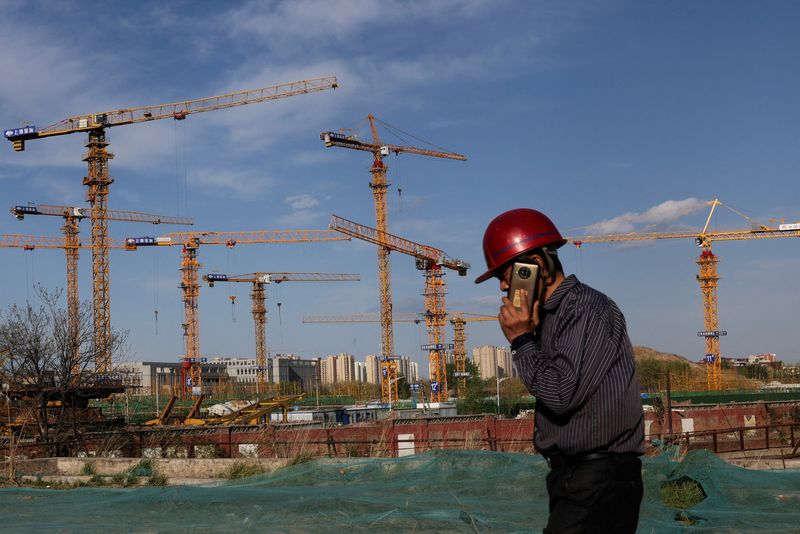By Samuel Shen and Vidya Ranganathan
SHANGHAI/SINGAPORE (Reuters) -China's local government financing vehicles (LGFVs) are repaying their bonds early at the fastest pace since 2018, taking advantage of a Beijing-backed debt swap programme aimed at slashing localities' borrowing costs.
The redemptions have jumped since October, when Beijing allowed local governments to issue special refinancing bonds, estimated to be worth over 1 trillion yuan ($139.85 billion), which could replace their higher-yielding LGFV debt.
However, investors are opposing the redemptions for fear of losing out on their gains from the higher-yielding LGFV bonds and a lack of alternative products with equal returns. The objections are adding to the fiscal struggles of the local governments, who face a wall of maturing bonds in 2024 amid a sluggish economy and wobbly property market.
LGFVs, set up by local governments to fund infrastructure projects such as bridges and roads, made early redemptions worth 37.8 billion yuan in December, the biggest monthly amount in five years, according to data from Financial China Information & Technology Co.
But bond holders are unwilling to concede to the early redemptions as "re-investing the money would generate lower returns," said Huang Xuefeng, credit research director at Shanghai Anfang Private Fund.
Only 59% of such early redemption proposals were backed by investors at bondholder meetings in 2023, data from Caitong Securities shows. Some LGFVs have been trying to incentivize the redemptions with extra monetary benefits.
Analysts said the investors approving these redemptions were primarily state-owned banks or entities.
The low approval ratio "reflects the tussle between LGFVs and bondholders, and restricts the progress of early redemptions," said Caitong analyst Fang Duo.
Hengyang Urban Construction Investment, Yingkou New Area City Development and Construction Investment and Nanchong Liniang Oriental Investment Group are among the LGFVs whose early bond redemption proposals were rejected by investors, according to filings.
Still, 128 LGFV bonds have been redeemed since October, as local governments, laden with nearly $9 trillion of debt, scramble to replace the LGFV bonds, yielding 6%-8% in most cases, with the new refinancing bonds that bear a coupon of roughly 3%.
As a result, LGFV net financing slumped to a negative 12 billion yuan in December, following a deficit of 2 billion yuan the previous month.
"This means the existing pool of LGFV bonds may trend lower," said Yao Yu, founder of credit analysis firm Ratingdog.
It's not yet clear exactly how much support local governments will continue to get from Beijing to avoid defaulting, as a record 4.2 trillion yuan of LGFV bonds are due to mature this year, according to data from Financial China.
UBS forecasts another 2-3 trillion yuan of local government bonds will be issued to replace the LGFV debt, while the central bank may continue providing emergency liquidity support to heavily-indebted regions.
U.S. consultancy Rhodium Group forecast that China's economy will grow just 3%-3.5% in 2024, more slowly than the mainstream forecast.

"Beijing could choose to boost growth by selling additional central government debt and giving money to the provinces to spend on infrastructure" rather than letting provinces finance this spending with their own bond issuance, Rhodium analysts led by Daniel Rosen wrote.
($1 = 7.1506 Chinese yuan renminbi)